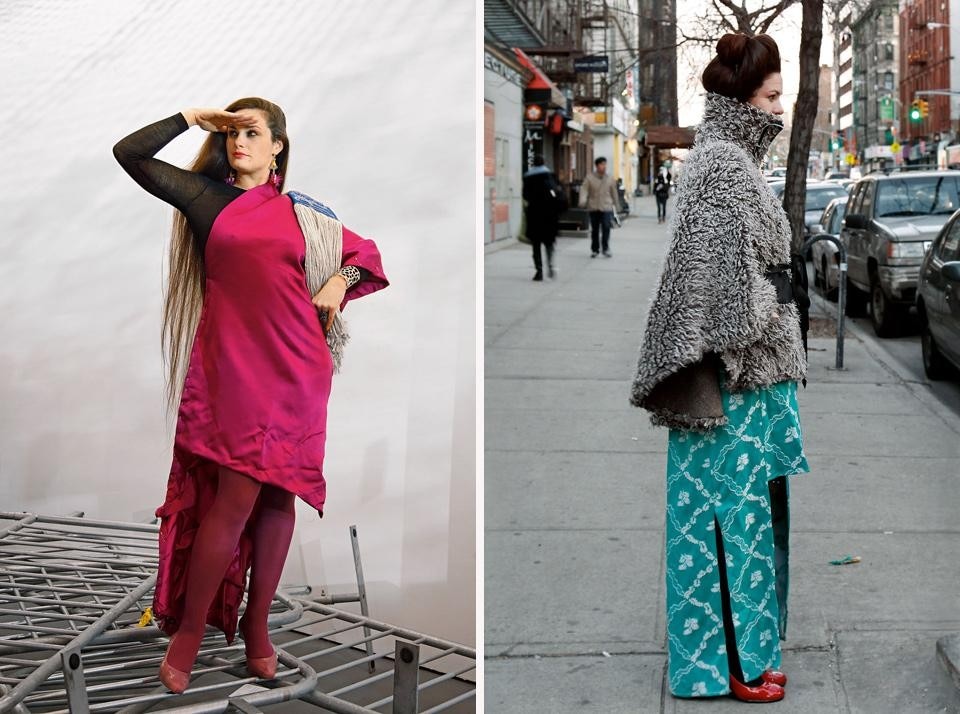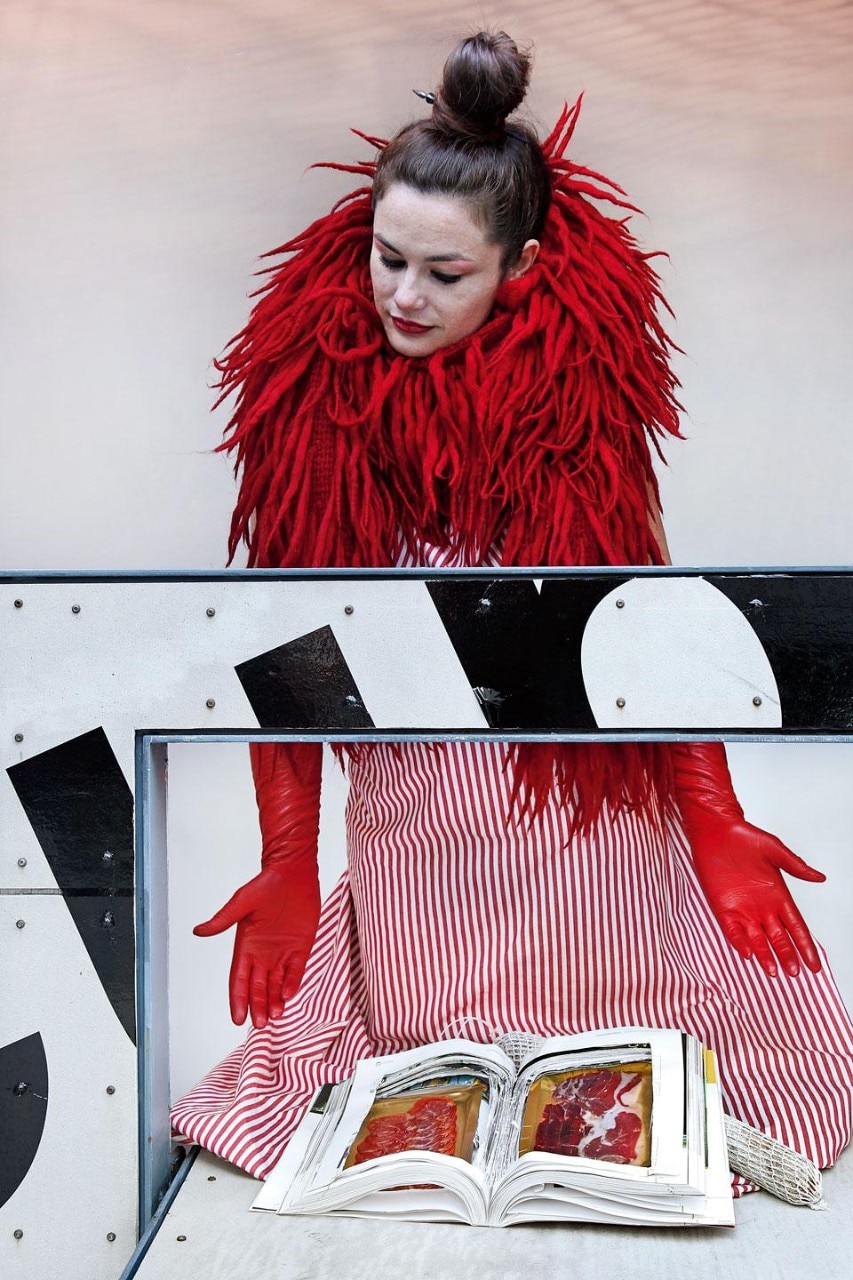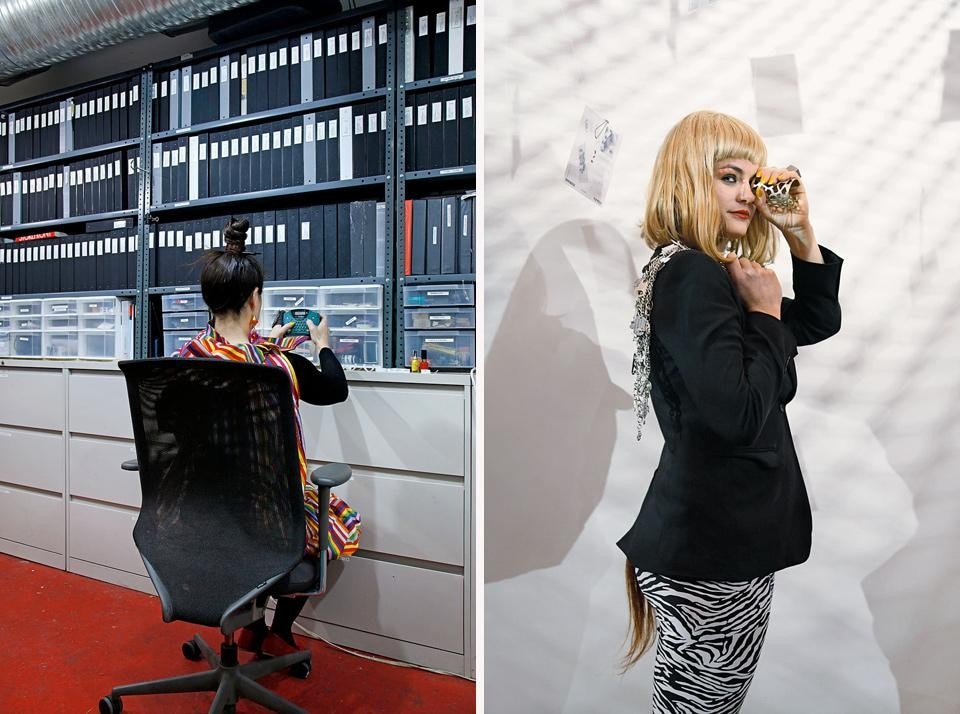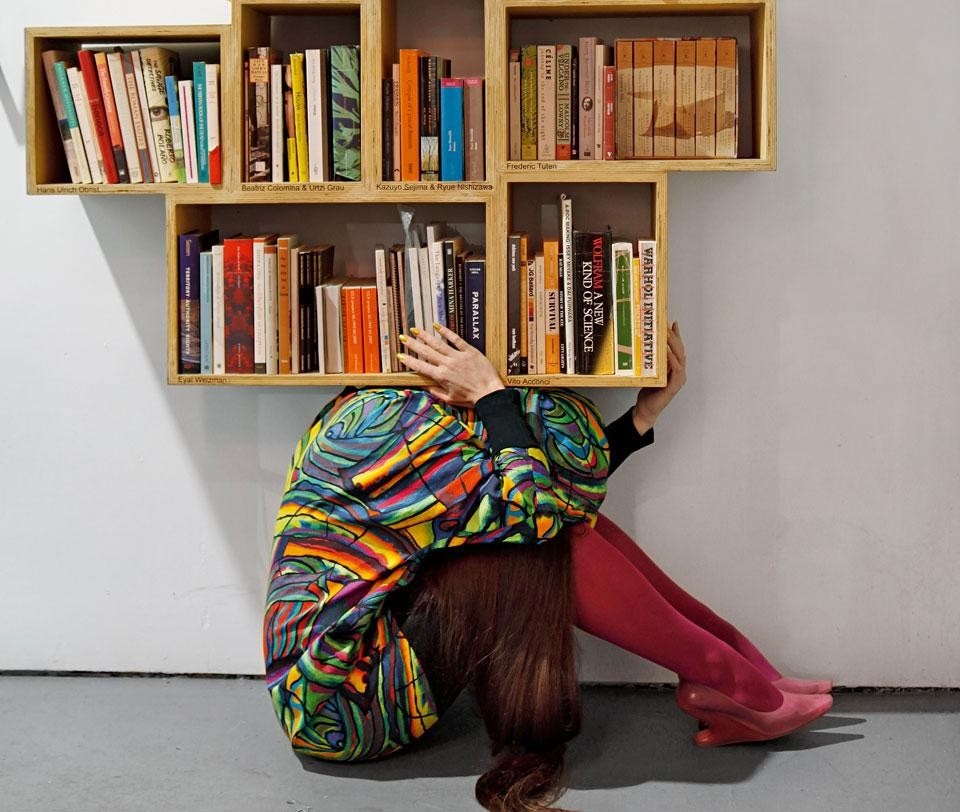Since Eva Franch's books and libraries are scattered between Catalonia, Houston and Manhattan, the best way to group them was for her to choose a set of guide words.
While she recounts stories that connect a life of reading to the words she has selected, one is impressed by the wobbly-looking turret of gathered hair on her head, which throughout our conversation seems on the brink of collapse yet never actually tumbles. Gianluigi Ricuperati
Desire
2004—2005 SBP Performance Lighting Catalogue
Empty books. A desire always wants content. This book has always been a very brief but intense read. First it was a prohibited book full of desirable Spanish and Catalan. My family used to send me one book a month, the first edited by my mother, one edited by my sister, another by my other sister, and so on. The "publisher" was always my nephew, an avid cutter and ruthless executor of lightweight catalogues and graphic standards. Now the book is empty. At the moment my object of desire can be bought a few yards from Storefront. But the empty books remain full of the desire for desire. And yet desire desires a content. Shall I read them every day, empty?

Karl Mannheim, Ideology and Utopia
Louis Marin, Utopics: Spatial Play
Fredric Jameson, The Brick and the Balloon
Manfredo Tafuri, The Sphere and the Labyrinth
I go weak when faced with the concept of utopia and any author who is courageous enough to choose utopia as the subject of their work. The sensation is even stronger if they go so far as to use the word "utopia" in the title of one of their books. Fredric Jameson worked for a while on utopia, and apart from his essay The Politics of Utopia and his book Archaeologies of the Future, with the hidden subtitle The Desire Called Utopia and Other Science Fictions, very few contemporary authors use this term and strip it of its pejorative, ideological connotations. My first encounter with utopia occurred through Karl Mannheim and his book about the sociology of knowledge titled Ideology and Utopia. In this book Mannheim very clearly establishes that ideology is the place where the "ideal" states of society are considered and utopia is the place of criticism. Louis Marin's Utopics: Spatial Play, on the other hand, presents utopian thinking as an agent, through the "neutral" as an active figure in society that is very similar to the present condition of movements like Occupy Wall Street, where nothing is requested but every principle is questioned. Utopia is a hard term. In Rem Koolhaas and Bruce Mau's S,M,L,XL it is one of the few words whose definition changes from one edition to another. But my favourite book on utopia is perhaps the one composed of all the different uses of the concept made by Tafuri in his work. The figura composita, created by putting together all the ways in which he uses the term utopia, is far more complex and precise than any definition.

Federico García Lorca, Poet in New York
George Lakoff, Mark Johnson, Metaphors We Live By
Jacques Derrida, Margins of Philosophy (White Mythology, Plus de Metaphore)
Ludwig Wittgenstein, Investigaciones filosóficas
As in the case of utopia, metaphor is perhaps one of the most misunderstood aspects of the creative act. Tied to the idea of composite figures that I just mentioned, metaphors are neither means of representation nor of communication. Metaphors are instruments of thought for the construction of new spaces of inquiry that reconcile and unveil a common starting ground. A metaphor consists of fundamental stepping stones towards a self-enclosed space. In Poet in New York, García Lorca explores the performative qualities of language. His writing leads us from what language is to what language does. García Lorca uses language in an extremely dynamic way, animating his writing with linguistic games and taking it beyond its traditional structures. The poet uses synecdoche but also metagoge (attributing qualities of animate objects to inanimate ones). It is a kind of animism, with a surreal, oneiric and poetic, yet extremely, brutally legible power. But to analyse metaphor one can travel from the linguistic games of Wittgenstein's Philosophical Investigations to the cognitive mapping of Lakoff and Johnson's Metaphors We Live By, or to Plus de métaphore in White Mythology, contained in Margins of Philosophy, in which Jacques Derrida clearly explains the distinction between a metaphor that expresses something outside the metaphor itself, and metaphor as the construction of something in itself. The point would be to invent a new term for the first or for the second. But I like the sound of the word metaphor. If only I could use it without embarrassment or explanations.
Memory
Aleksandr R. Luria, The Mind of a Mnemonist: A Little Book about a Vast Memory
Oliver Sacks, The Man Who Mistook His Wife for a Hat
Marcel Proust, Remembrance of Things Past (Swann's Way)
These books offer extraordinary provisions for a journey into memory (another key word as heavy as stone), approaching it from a neurological, sensorial and narrative point of view.

Julio Cortázar, Instructions on How to Climb a Staircase in Cronopios and Famas (audiobook)
Michel Foucault, The Order of Things
Jacques Rancière, The Politics of Aesthetics
There are marvellous books with indexes to be created, and marvellous books with marvellous indexes, and then there are mediocre books with marvellous indexes, which transform them into absolutely magnificent books. The beauty of these indexes lies in their capacity to become taxonomies of thought, and as such to transform their underlying logic entirely. Order fascinates me, just like instruction manuals, these rigorous structures that you may happen to intercept, and the contiguities that they produce. Within this strict order, however, you will always find tools to break down the whole piece. At times these tools become new autonomous terms, unthinkable for collective thought. And at times they become a collection in and for themselves, and eventually a language, a glossary of terms.
Hollowed Books
I love these. During my early years in America, one of the things I missed from Spain was of course the jamon, or ham. Since customs laws on food imports made it difficult for my family to send me chunks of ham, we carved and hollowed, literally dug out, a book, a Postal-Market-type catalogue, and concealed the precious package inside it. In this way it got through customs as a book and not as food. Since then I've developed a great passion for hollowed books, non-bookbooks that contain something else.
Milan Kundera, The Unbearable Lightness of Being: A Novel
Barbara Ann Kipfer, The Order of Things: Hierarchies, Structures, and Pecking Orders
Alain Badiou, Pocket Pantheon: Figures of Postwar Philosophy
These books are like mirrors of your capacity to understand how much others understand about you. They reveal parts of yourself that you thought didn't exist, or which maybe you thought did exist but weren't entirely aware of the fact, or perhaps you simply didn't believe that someone else, in the brief time spent getting to know one another, would ever have noticed. To me this has happened a few times, although not many, and now I'd like to recall three in particular


